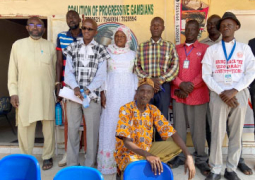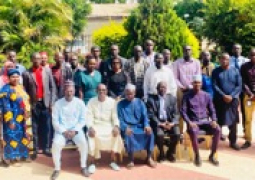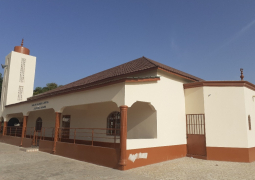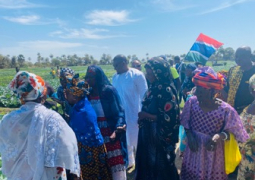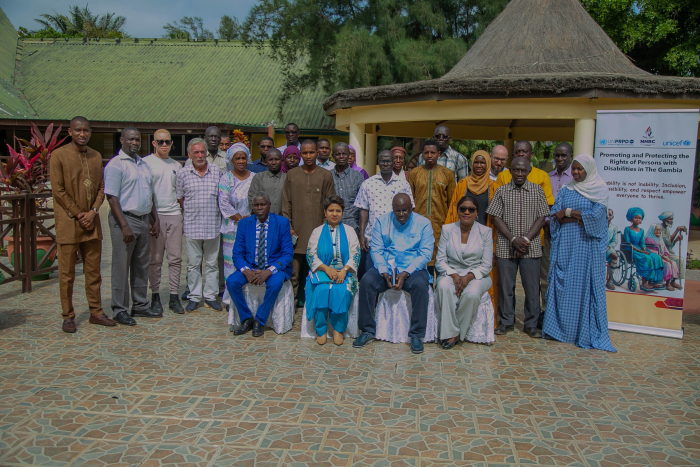
The training, which focused on the inclusion of persons with disabilities in national disaster risk management policies and interventions, according to officials, was long-overdue in view of its critical conversation looking at the country’s vulnerability to climate-related disasters such as flooding.
The training attracted key stakeholders, including government agencies, civil society organisations, the National Disaster Management Agency (NDMA), organisations of persons with disabilities (OPDs), and development partners, with the primary goal of integrating disability-inclusive strategies into national disaster preparedness, response, and resilience-building frameworks.
Addressing the gathering, Jainaba Johm, Vice Chairperson of the NHRC, emphasised the necessity of a rights-based approach to disaster preparedness and risk reduction.
“It has been said and I want to reaffirm that effective disaster preparedness and response must be inclusive, equitable, and grounded in human rights.” she stated.
“We are at a point where the frequency and intensity of natural and human-induced disasters continue to grow. If our national mechanisms and strategies are to be truly effective, they must be inclusive of all segments of our population, especially the most vulnerable.”
Johm further highlighted the disturbing reality that persons with disabilities are often neglected not due to their impairments, but because of structural barriers.
She cited a recent flood incident in Bundung where a boy was reportedly carried away by flood water, warning that such disasters do not discriminate, but their impacts do.
“The real question we must ask is where are persons with disabilities placed in our emergency response systems? Are they part of our planning? Are we thinking about their mobility, their safety, their dignity?”
For her part, Nafisa Binte Shafique, UNICEF Representative in The Gambia, made reference to the often-invisible suffering of children with disabilities, particularly girls.
“Imagine a girl with a physical or intellectual disability, experiencing a flood while menstruating. What is her situation? Who is there for her? We must make disaster preparedness not only accessible but empowering for every child.”
“Children and adolescents with disabilities must not only access services. They should become responders and leaders. That is true empowerment.”
UNICEF country rep pointed out that the ongoing development of the National Disaster Risk Management Policy offers a once-in-a-decade opportunity to integrate inclusive principles into national systems.
“This is not just a document. It is a blueprint for action. We all need to come together, from government institutions to civil society and the UN family, to ensure that no one is left behind. Persons with disabilities must be seen, heard, and included at every level.”
Sanna Dahaba, Executive Director of National Disaster Management Agency (NDMA), highlighted the importance of aligning the training with Strategic Priority Area 8 of The Gambia’s National Disability Strategic Plan 2023–2033.
“At NDMA, we understand that inclusive disaster risk reduction is not charity. It is about human rights, dignity, and justice,” Dahaba said. “Our policies and operational frameworks must reflect the lived realities of persons with disabilities. It is not enough to talk; we must act.”
Dahaba called for stakeholders to approach the training with a mindset geared toward institutional transformation.
“Let this not be just another workshop where we discuss the same issues year after year. Let it be a catalyst for change. Let us use this space to reimagine how disaster risk planning can be done differently, better and more inclusively.”
He emphasized that true national resilience can only be achieved when all citizens, regardless of ability, are included in planning, implementation, and response.
“Disasters may not choose their victims, but systems do. When persons with disabilities suffer more during emergencies, it’s because our systems failed them. That is something we can and must change starting now.”


